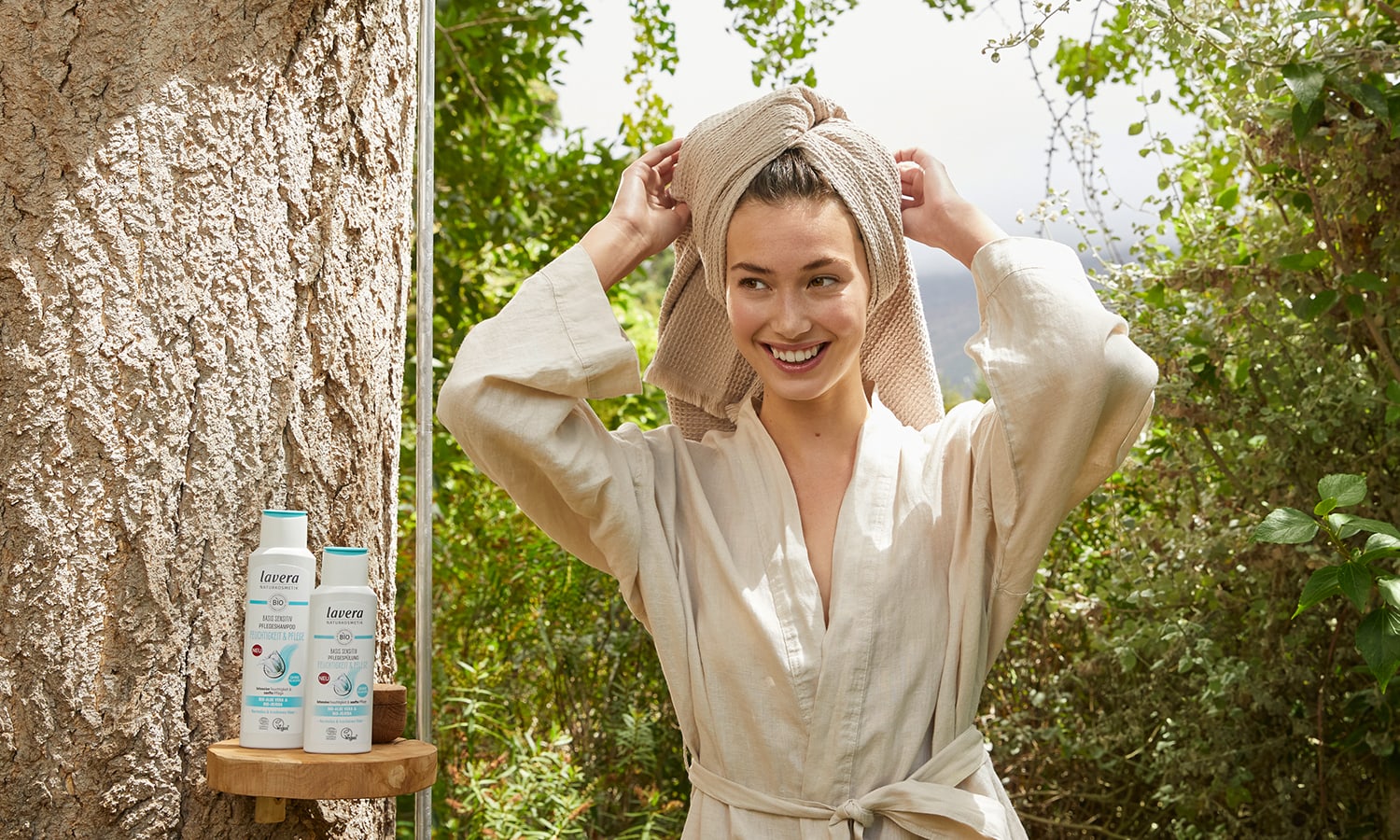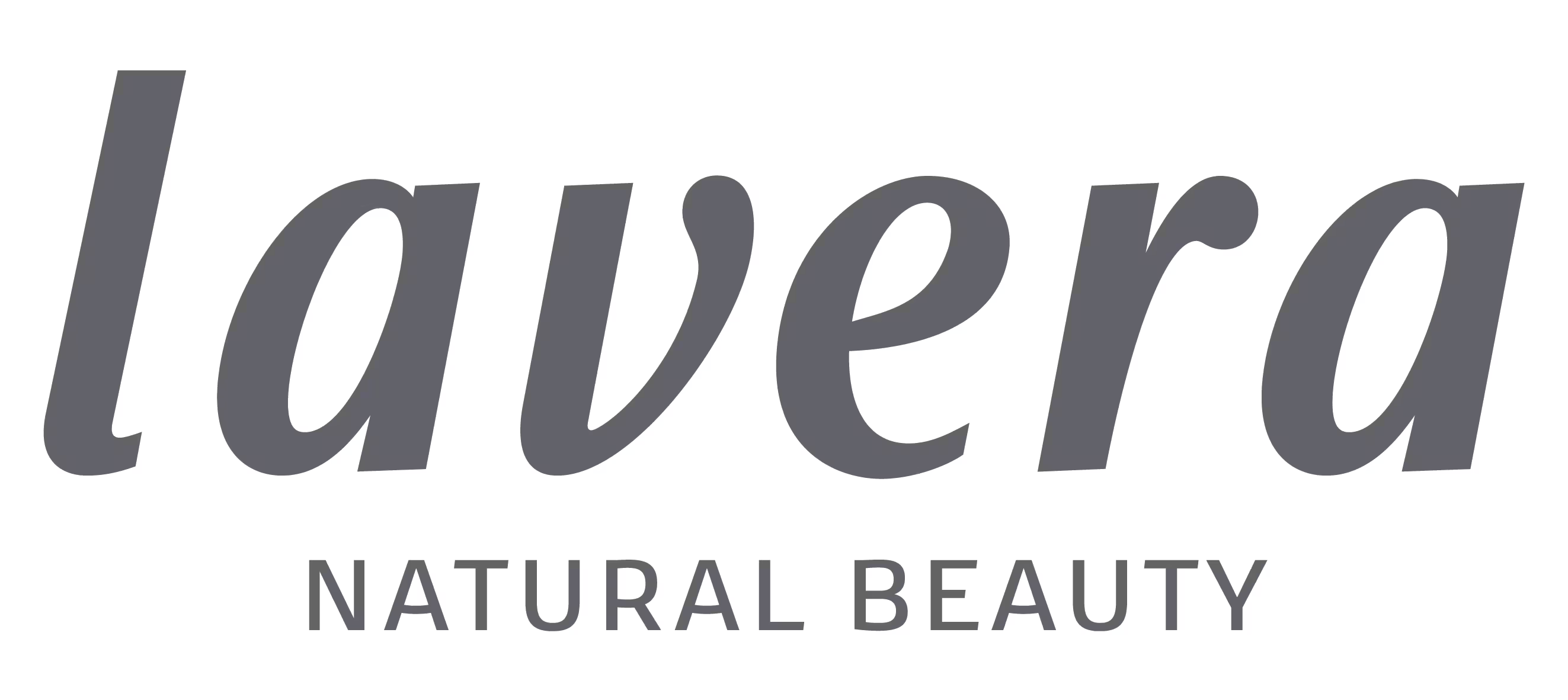The world of hair care offers a multitude of products designed to help us keep our hair looking healthy, shiny and beautiful. Today, shampoos are veritable high-tech products that can easily contain up to 30 ingredients. The growing interest in sulphate-free, silicone-free and paraben-free shampoos therefore makes perfect sense. Here, we take a closer look at these ingredients and answer the most important questions about them. Let us show you how to recognise them and explain their purpose in hair products.
Silicones are widely used not only in shampoos, but also in conditioners, hair treatments, styling sprays and the like. But what are they really? The term 'silicone' refers to a group of synthetic polymers in which silicon atoms are linked via oxygen atoms to form molecular chains and/or networks. This diversity of possible compounds results in a wide range of properties that make them suitable for use in hair care products.

Do lavera shampoos contain silicones?
In certified natural cosmetics, we consciously refrain from using silicones in our shampoos, conditioners and hair treatments. We prioritise natural ingredients such as plant oils, proteins, peptides, amino acid derivatives and botanical extracts that can be absorbed by the skin and hair, and offer silicone-free shampoos, conditioners and treatments that gently cleanse and condition the hair. What's more, our formulas are vegan, free from microplastics and easily biodegradable.
But be careful: Due to their strong detergent effect, sulphates can strip the skin and hair of natural oils, which can contribute to dry hair and a dry scalp. This is why you should not use sulphate-containing shampoos on a daily basis.

Why is it better to use paraben-free shampoo?
Although parabens are generally considered to have the lowest allergenic potential as preservatives, some people may still experience allergic reactions to them. In addition, there are concerns that butyl and propyl parabens may affect the endocrine system. (Amended Safety Assessment of Parabens by the European Commission Scientific Committee on Consumer Safety – SCCS). This means that parabens can mimic the effect of hormones such as oestrogen in the human body and thus upset the hormone balance. Although the scientific consensus is not yet conclusive in this regard, many people prefer to use paraben-free shampoos out of caution. Parabens are banned in certified natural cosmetics, such as those from lavera.
Benefits of silicone and paraben-free shampoos
Using silicone and paraben-free shampoo can have various benefits: For example, it can help minimise potential health concerns. Here at lavera, we use essential oils, among other things, as a natural alternative to parabens. Silicone-free shampoo leaves your hair feeling smooth and silky the natural way. At lavera, this effect is achieved through the use of vegetable oils (e.g. argan oil, macadamia oil or jojoba oil), proteins (e.g. pea protein), and plant or plant-based conditioning substances such as guar gum (INCI: guar hydroxypropyltrimonium chloride) or rapeseed oil (INCI: PCA glyceryl oleate).
Dispensing with silicones is not only better for your hair but also for the environment. Sulphates and surfactants are essential to the detergent effect of shampoos. However, mild surfactants are a better choice, as they are gentler on the skin and the environment. lavera uses natural alternatives such as sulphate surfactants, sugar surfactants or betaines. lavera shampoos, hair treatments and conditioners are silicone-free, paraben-free and formulated with mild surfactants.









